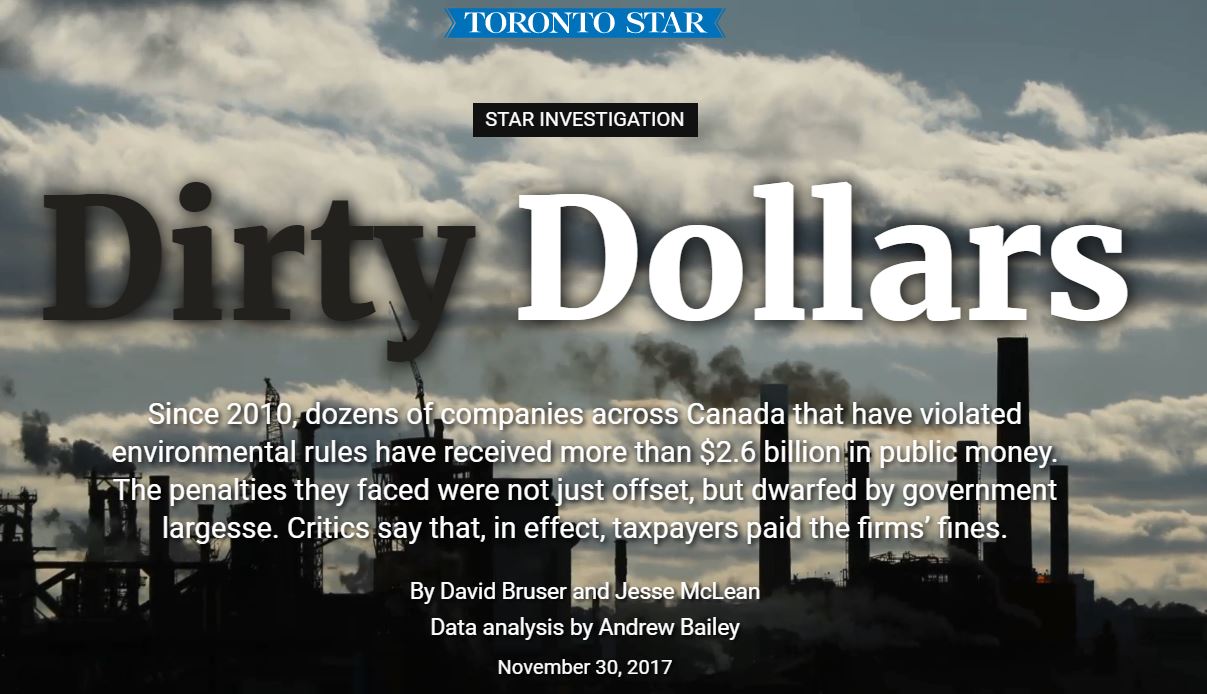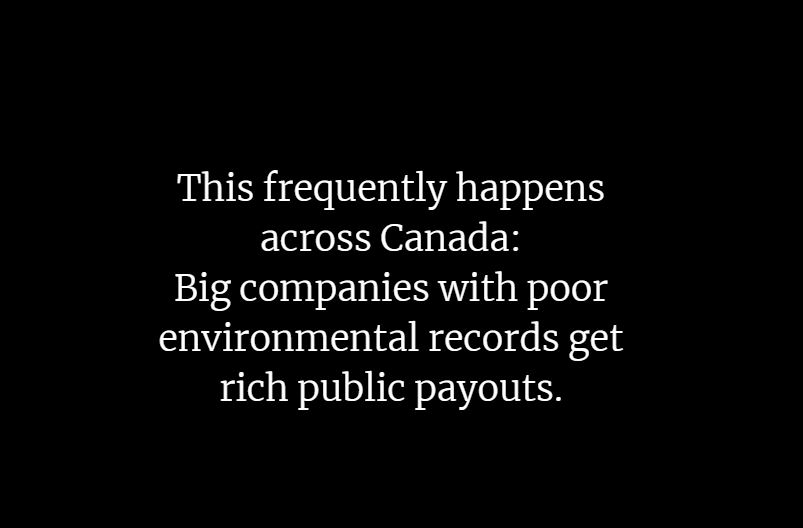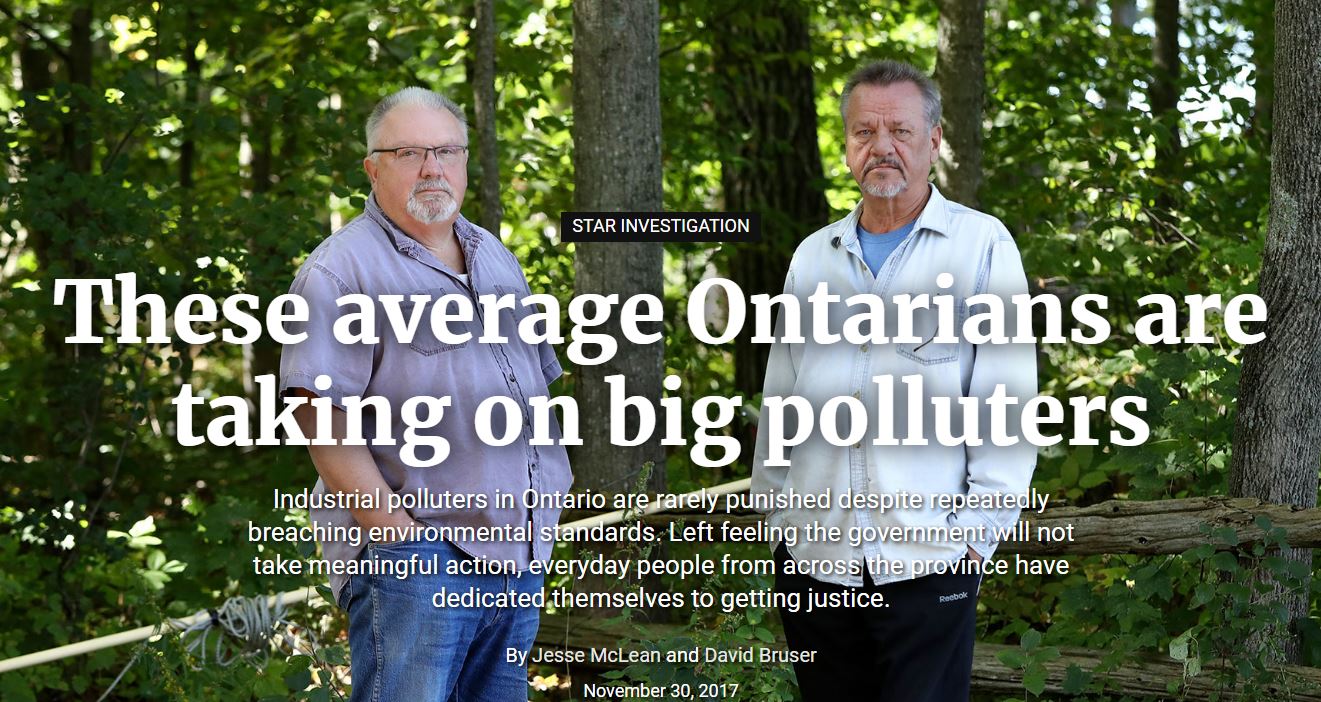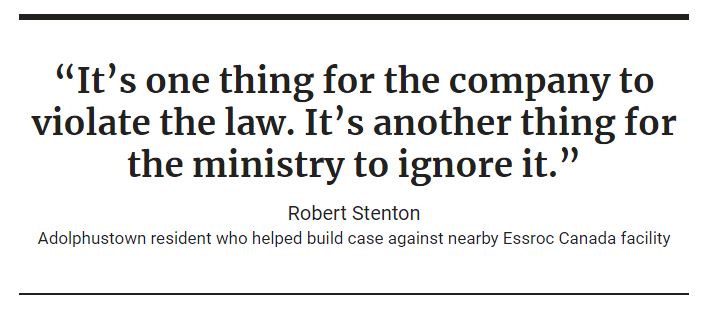Natural gas company fined after dead birds found floating in fracking fluid tank, 14 migratory birds were found dead in containment tank north of Fort St. John by The Canadian Press, with files from Andrew Kurjata, Jan 24, 2018, CBC News
A natural gas company has been fined $235,000 after 14 migratory birds were found dead in one of its containment tanks north of Fort St. John, B.C.
Calgary-based Painted Pony Energy was given the fine last month after pleading guilty in May to depositing a harmful substance in an area frequented by migratory birds.
A B.C. provincial court judge ordered the company to pay $115,000 to Ducks Unlimited Canada and $57,500 each to the Mackenzie Nature Observatory and to the Oiled Wildlife Society of British Columbia. A fine of $5,000 will also be paid to the Environmental Damages Fund.
The company will also be added to the federal Environmental Offenders Registry.
Environment Canada says enforcement officers found the birds floating on the surface of an above-ground tank used to store fluid for the hydraulic fracturing process in 2013, but says the company has since installed equipment to ensure no other birds become trapped.
Painted Pony Energy fined after 14 birds found floating in B.C. fluid tank by The Canadian Press, January 24, 2018, Calgary Herald
A Calgary-based natural gas company has been ordered to pay $235,000 to wildlife groups after dead birds were found floating in one of its containment tanks in northern British Columbia.
Painted Pony Energy Ltd. pleaded guilty in May and was sentenced last month for depositing a harmful substance in an area frequented by migratory birds.
Environment Canada says enforcement officers found 14 dead migratory birds on the surface of an above-ground tank located north of Fort St. John that was used to store fluid for the hydraulic fracturing process.
A B.C. provincial court judge ordered Painted Pony to pay $115,000 to Ducks Unlimited Canada and $57,500 each to the Mackenzie Nature Observatory and to the Oiled Wildlife Society of British Columbia. [A court ordering a company to give money to groups that further enable oil and gas industry crimes and pollution (synergize), shows just how deeply oil patch controlled Canada’s courts are. Companies use ordered donations as positive publicity, boast what wonderful generous companies they are.]
Environment Canada says the company, which changed its name last year from Painted Pony Petroleum Ltd., has since installed equipment on the tank to prevent other birds from becoming trapped.
The department says Painted Pony will be added to the environmental offenders registry. [Emphasis added]
[Refer also to:
2017 11 30: MUST READ Dirty Dollars, Special investigation by the Toronto Star
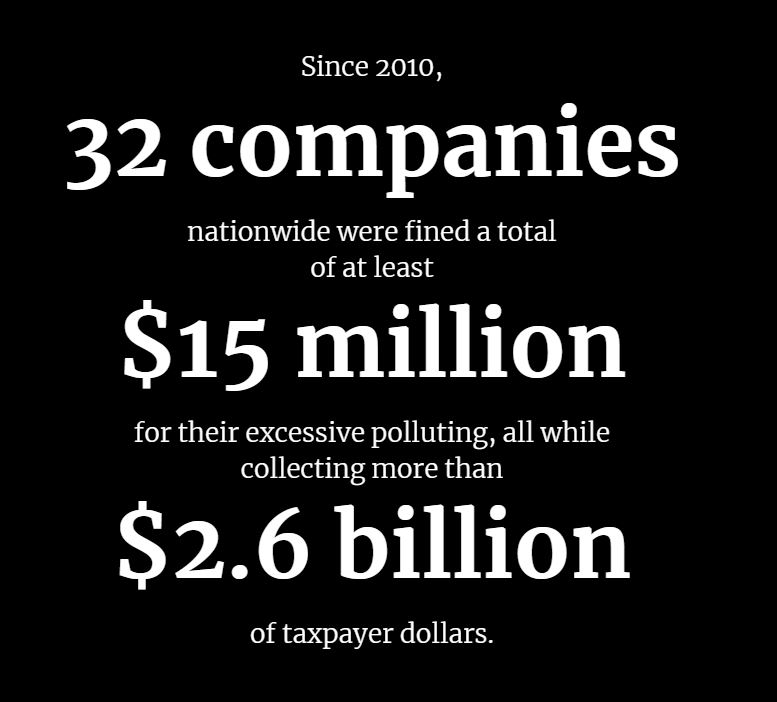 2017 11 30: Another MUST READ Toronto Star Investigation: These average Ontarians are taking on big Polluters
2017 11 30: Another MUST READ Toronto Star Investigation: These average Ontarians are taking on big Polluters
2018 01 20: Citizen Sued for Libel Over Facebook Comment About Oil and Gas Company
… According to these court documents, the Justice Department’s two-year investigation led it to determine “that SGI’s and GEC’s agreement to bid jointly pursuant to the MOU constituted a per se violation of Section 1 of the Sherman [Antitrust] Act.”
The original settlement “required” the companies to pay $550,000 for “antitrust and False Claims Act violations.” It was the first time the federal government challenged an “anticompetitive bidding agreement for mineral rights leases.” That settlement, however, was later rejected by a federal judge, who approved a new settlement of $1 million [Did the company negotiate with the judge to pay more in exchange for “innocence?” If the company is indeed innocent, why double the fine? What a farce legal systems and judges are] and did not require the companies to admit to wrongdoing.
Libel or Retaliation?
SGI argues that Kolbenschlag’s statement that the company was fined for colluding with GEC is libelous because it is “contrary to the true facts, and reasonable persons … reading … the statement would be likely to think significantly less favorably about [SGI] than they would if they knew the true facts.”
The company argues that it was never convicted of or admitted to wrongdoing, and the settlement agreement did not require it.
SGI further argues that it was not “fined,” but rather agreed to pay the government money to settle the case.
Moreover, SGI claims that “agreements such as the ones entered into between SGI and GEC are common place in the oil and gas industry.” And therefore, presumably, there’s nothing wrong with what they did.
Kolbenschlag’s attorney not only argues that his client’s comment was “substantially true” in the eyes of ordinary readers, but also that SGI’s lawsuit against him is in retaliation against his environmental activism. In legal briefs, his attorney writes that “this lawsuit is SGI’s transparent and blatant effort to punish Mr. Kolbenschlag for his public speech and advocacy that are not to SGI’s liking.”
… In December, a judge denied Kolbenschlag’s motion to dismiss the case but decided to expedite the court proceedings. Shortly after that, SGI filed a motion to force Kolbenschlag to submit to questioning. The case is still pending in court, with a decision expected sometime in the coming weeks or months. [Emphasis added]
2018 01 23: Oklahoma Supreme Court: Oil companies can be sued when worker injured
The Oklahoma Supreme Court ruled Tuesday that oil and natural gas companies can be sued when a worker is killed or injured on the job.
The state’s highest court struck down a state compensation law that exempted oil and gas well operators and owners from lawsuits, including one filed by the family of a worker who was fatally burned in 2014 at an Oklahoma County oil well site operated by Stephens Production Co.
The ruling was handed down one day after a fiery explosion at an Oklahoma gas drilling rig in southeastern Oklahoma left five workers missing. Officials said Tuesday they had recovered the remains of all five workers who were unaccounted for.
The family of trucker David Chambers Sr. filed a lawsuit after he was dispatched to an oil well site in Crescent, Oklahoma, to pick up waste water and was severely burned on Oct. 6, 2014. Chambers, who was 59, died three days later. The family’s attorney, T. Luke Abel, said Chambers was “horrifically burned” and “never made it out of the hospital.”
Among other things, the lawsuit seeks at least $300,000 in damages and alleges that the company negligently operated the well and failed to warn Chambers of dangerous conditions at the site.
But attorneys for Stephens argued that a compensation law adopted by the Oklahoma Legislature in 2013 granted the oil well’s operator immunity from the lawsuit. The law was among a series of civil justice reform measures adopted by the Republican-dominated Oklahoma Legislature and signed into law by GOP Gov. Mary Fallin in 2013 that supporters said would help block frivolous lawsuits and reduce malpractice and liability insurance costs for doctors and businesses.
In an 8-0 ruling with one recusal, the Supreme Court agreed with a district court judge who ruled the statute is an unconstitutional special law designed to treat the oil and gas industry differently than other industries.
“…No valid reason exists for the special treatment of the oil and gas industry” under Oklahoma’s compensation system, the high court’s ruling states.
An attorney for Stephens, E. Edd Pritchett Jr., didn’t immediately return a telephone call from The Associated Press seeking comment.
The lawsuit was sent back to the district court for additional arguments. Abel said the family hopes to “work toward a resolution” of the case.
“We’re pleased with the result,” Abel said.
The Supreme Court ruling is the latest in a series of decisions that have invalidated civil justice laws adopted by the Legislature that critics said created barriers to court access in violation of the state constitution.
“They need to ensure that the legislation they pass is constitutional,” Abel said.
A total of 15 workers were killed in Oklahoma while working in mining, quarrying and oil and gas extraction jobs in 2014, the year Chambers was fatally burned, including six that involved transportation incidents, according to the U.S. Department of Labor’s Bureau of Labor Statistics.
The Occupational Safety and Health Administration reports that from 2003 to 2010, 823 oil and gas extraction workers were killed on the job in the U.S. — a fatality rate seven times greater than the rate for all U.S. industries. Hazards that led to the deaths of oil and gas workers included explosions and fires, falls and chemical exposures, according to OSHA. [Emphasis added]
2010 09 28: EnCana Corporation facing criminal charges Encana “donates” and escapes the charges two years later 2012 09 12: $250000 in community safety projects following Encana deadly sour gas leak
Is Encana above the law in Canada? The company was never charged for breaking the law and fracturing Rosebud community’s drinking water supply, contaminating numerous water wells; instead the regulators bullied and shamed the impacted residents, and violated Ernst’s charter rights to punish her for presenting the AER with documented evidence of Encana breaking the law. Top that with the Supreme Court of Canada lying about it in their ruling in Ernst vs AER ]

